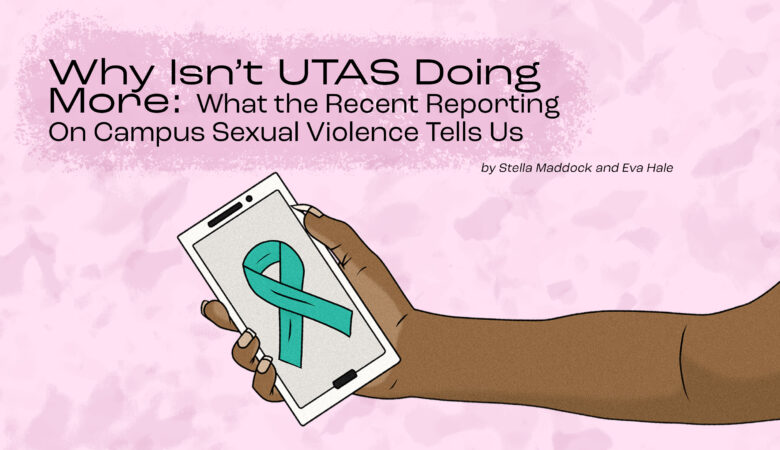CW: ED, SH. Please practice self-care before, after, and during the reading of this article.
Instead of beginning this article with some hook or statistic or intriguing statement, I want to begin by saying that I had to stop researching this piece for a long time before I could pick it up again. I teetered and wobbled around the decision of whether this piece is too harmful to me and not helpful to those who would read it. But the deeper I dive into the topic of Ozempic, the more it becomes clear that the narrative that I believe needs to be spread is simply not what is being written (at the time I am researching… things may have changed by the time this is published). It’s a fine line between being passionate about a topic and being heartbroken. For what I have seen in my research, I am truly and utterly heartbroken.
I am also viciously angry.
So, what is Ozempic (if you’ve been under a rock or taking some healthy space from the celebrity news sector)? I wish I could tell you that Ozempic is evil. I wish that I could tell you that it should be eliminated from the world and put in the past. But the fact is that Ozempic is a very helpful drug to the right people. Released and designed to control blood sugar levels for those with Type 2 diabetes, I want to highlight that Ozempic is not approved to be prescribed for weight-loss purposes. In fact, the weight-loss Ozempic can cause is a side effect of a side effect (reduced appetite) of the drug’s actual purpose.
Ozempic is a popular commercial name for the active ingredient, semaglutide. In 2022 and into 2023, we saw a worldwide semaglutide shortage due to tremendous increases in demand caused by off-label prescribing of Ozempic for weight-loss. This has meant that many people suffering with type 2 diabetes have struggled to access treatment. Despite Ozempic being covered by the Pharmaceutical Benefits Scheme in Australia as a treatment for diabetes, that doesn’t stop the fact that supplies are just… not there. While the limited supply has led to skyrocketing costs of Ozempic for off-label prescriptions (up to $2000 per course), the supplies in Australia are still being drained by non-diabetics. The spike in popularity of using Ozempic as a weight-loss drug has been identified as a social media trend.
The fact that, in my research, I read an article titled ‘Shortage of type 2 diabetes medication linked to social media weight loss trend’ is absolutely horrific. At the time of writing this, the hashtag ‘Ozempic’ has over 901 million views on TikTok. This is colossal. I see the stock footage of a white, soft feminine belly, being squeezed by a measuring tape. It’s here, I think. We’re back here again. We are back in the space of fad diets and skinny teas and lollipops that make you forget to eat. We are watching celebrities reduce and reduce until they are frames of their former selves. We are listening as they casually deny having gone to extreme lengths to become so small that their fans are concerned for their health. We are laughing as, at the 2023 Oscars, Jimmy Kimmel looks around the room and jokes, “Is Ozempic for me?” and we are all thinking quietly to ourselves, is Ozempic for me?
There have been few studies conducted regarding the short-term effects that the drug has, and no studies conducted exploring the long-term effects (at the time research was conducted, the longest study lasted 68 weeks). Why is this a worry? Well, let’s just say that we haven’t had the best track record with ‘trending’ weight-loss drugs that won’t likely ‘kill’ you. Specifically, drugs that operate by reducing and supressing appetite, as Ozempic does. Phentermine, commonly known as ‘Fen-Phen,’ was a widely popularised and approved weight-loss drug released in 1959. It was banned in the 1990s after being found to seriously damage heart valves and increase risk of heart disease. And this isn’t out of the ordinary for weight-loss medication. Belviq, Qsymia, Tenuate; the list of diet drugs linked to serious heart problems goes on.
So why are so many people still taking them?
Well, we can start with what we are seeing in the media right now. In the late 2010s, it seemed as if we were moving away from the desperate and dangerous diet culture that was celebrated in the early 2000s. ‘Body positivity’ became the new hot thing—we saw expansions of size ranges in major fashion retailers and more inclusivity from large brands. Some of these were token efforts, but we saw the demand for size and shape inclusivity for what felt like the first time ever. It seems that, with the return of much nostalgic ‘Y2K’ fashion, the idealisation of thinness has also made a comeback. Many celebrities have been linked with the return of the ‘heroin chic’ body and extreme weight-loss lately. Notably, we saw Kim Kardashian frantically (and frighteningly) reduce in an incredibly small amount of time to fit into Marilyn Monroe’s dress for the 2022 Met Gala. More recently, we watched as a gaunt Gwyneth Paltrow told us about her concerning and radical diet while hooked up to an IV. I have been watching this unfold and seething with rage—how dare they do this to us again?
Of course, it is important to note that many of the women inspiring this movement are victims themselves. How tragic it is to always see Kim Kardashian framed by her appearance, constantly stuck in a weight-loss or cosmetic surgery accusation. How devastating it must be to be early 2000s body icon Gwyneth Paltrow, still desperately trying to become smaller at 50 years old. How disappointing it is to be Gigi Hadid, told by her mother that she must not eat her own graduation cake because her only value as a daughter and a celebrity is her thinness. I mourn for these people. I empathise with the way the media has made monsters of them and then criticised them for growing scales. But there is something to be said about these people needing to take responsibility for the sway they hold over vulnerable people while being in the spotlight; they are victims, yes, but they are also pedalling and profiting off this damaging rhetoric.
On the popularity and discussion surrounding Ozempic and extreme weight-loss on social media, Ashley Moser, a clinical education specialist at eating disorder treatment facility The Renfrew Center, says, “It reinforces the message that all people should strive for thinness and be willing to do so with whatever means are available, even if there is a cost to their physical or mental health.” Moser’s message begs the question: in our battle to lose weight, how much else are we willing to lose?
Do you want to know the real kicker that nobody wants you to know about Ozempic as a ‘miracle weight-loss drug’? Once you stop taking it, you gain all the weight back. Yup. This is being termed ‘Ozempic Rebound.’ Why does this happen? Well, once you start eating like your normal human self again, you’re going to return to your normal human self. It’s almost like your body wants you to be strong and healthy. It’s almost like this drug is just another short-term weight-loss fad that has the potential to ruin your life if not ravage your body.
This isn’t to say that weight-loss cannot be healthy for some and lead to a better quality of life. This is just to say being fed an impossible body standard by so many celebrities is incredibly damaging. These bodies are not natural, achievable, or healthy in any way. Our interactions with diet culture are toxic and target vulnerable groups of people for whom interacting with these practices is not necessary and often physically dangerous.
To me, this fad has proven one thing in devastating clarity. The fact that we have flocked to yet another ‘weight-loss miracle’ after years of pushing for inclusivity says to me that we have only been in a temporary lull amidst a horrific obsession with thinness that has spanned centuries. Once again, we see how enormous conglomerates profit from this capitalist cycle of individual and systematic self-loathing. With the rise of Ozempic, it’s become very clear; thin was never not in.
If this piece has brought up any distress surrounding yourself or someone you know suffering with an eating disorder or body image issues, please do not hesitate to contact the Butterfly Foundation’s National Helpline on 1800 33 4673. Visit their website: https://butterfly.org.au/
Please practice self-care (I sure have!) before, after, and during this article. Sending so much love to our beautiful readers.
References
“About the Ozempic (semaglutide) shortage 2022 and 2023.” Australian Government: Department of Health and Aged Care, 16 Feb 2023, https://www.tga.gov.au/safety/shortages/information-about-specific-shortages/about-ozempic-semaglutide-shortage-2022-and-2023#:~:text=The%20worldwide%20shortage%20of%20semaglutide,label%20prescribing%20for%20weight%20loss.
“Clinical Review Report: Semaglutide (Ozempic): (Novo Nordisk Canada Inc.): Indication: For the treatment of adult patients with type 2 diabetes mellitus to improve glycemic control, in combination with metformin (second-line treatment), and in combination with metformin and sulfonylurea (third-line treatment).” Canadian Agency for Drugs and Technologies in Health, June 2019, https://www.ncbi.nlm.nih.gov/books/NBK544016/.
“Diethylpropion (Tenuate).” EverydayHealth, 23 Jun 2020, https://www.everydayhealth.com/drugs/diethylpropion.
Ducharme, Jamie. “For People with Eating Disorders, the Buzz About Ozempic Is a Nightmare.” TIME, 2 Mar 2023, https://time.com/6259572/ozempic-eating-disorders/.
“Hughmungously awkward (sorry).” Shameless, created by Zara McDonald and Michelle Andrews, Shameless Media, 2023.
Mayer, Beth Ann. “Ozempic and Eating Disorders: Why Experts Are Raising Concerns.” Healthline, 15 Mar 2023, https://www.healthline.com/health-news/ozempic-and-eating-disorder-risks.
“The New Weight Loss Miracle Drug? Ozempic.” Seems Like Diet Culture, created by Mallory Page, episode 34, Mallory Page, RD, 2022.
“OZEMPIC (semaglutide) injection, for subcutaneous use (Instructions for Use).” Novo Nordisk, 2017.
Trajkovich, Marina. “Shortage of type 2 diabetes medication linked to social media weight loss trend.” Nine News, 31 May 2022, https://www.9news.com.au/national/shortage-of-type-2-diabetes-medication-linked-to-social-media-weight-loss-trend/60487c21-a029-4e03-a04b-6c0f86954181.
“Weight Loss Meds: Is Ozempic a Miracle Drug?.” Science Vs, created by Alex Blumberg, Gimlet Media, 2023.
Wetsman, Nicole. “Eating disorder experts are worried about diabetes drugs like Ozempic being used for weight loss.” ABC News, 6 Mar 2023, https://abcnews.go.com/Health/eating-disorder-experts-worried-ozempic/story?id=97615429. “What Happens When You Stop Taking Ozempic?.” Diet Starts Tomorrow, created by Remy Kassimir and Emily Lubin, Betches Media, 2023.








